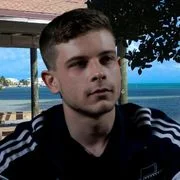

Hire The Best Reaction Engineering Tutor
Top Tutors, Top Grades. Without The Stress!
10,000+ Happy Students From Various Universities
Choose MEB. Choose Peace Of Mind!
How Much For Private 1:1 Tutoring & Hw Help?
Private 1:1 Tutors Cost $20 – 35 per hour* on average. HW Help cost depends mostly on the effort**.
Reaction Engineering Online Tutoring & Homework Help
What is Reaction Engineering?
1. Reaction Engineering (Rxn Eng, where “Rxn” means reaction) is a branch of chemical engineering that studies how chemical reactions proceed and how to design and operate reactors efficiently. It combines reaction kinetics, transport phenomena, and thermodynamics to scale up lab processes—think making pharmaceuticals, refining petroleum, or baking bread.
2. Popular alternative names of Reaction Engineering: Chemical Reaction Engineering Reactor Technology Reactor Design & Analysis Reaction Process Engineering
3. Major topics/subjects in Reaction Engineering include: • Reaction kinetics and rate laws (e.g. determining how fast pollutants break down in water treatment) • Reactor types and design (CSTR (Continuous Stirred-Tank Reactor), PFR (Plug Flow Reactor)) • Heat and mass transfer in reactors • Catalysis and catalyst deactivation (like in auto catalytic converters) • Scale‑up and pilot plant studies • Modeling, simulation and process control • Safety, hazard analysis and environmental impact
4. A brief history of most important events in Reaction Engineering Early 19th-century work by J.W. Döbereiner on hydrogen catalysts laid groundwork. In 1884 Svante Arrhenius introduced the activation energy concept. The advent of CSTR and PFR designs in the 1930s revolutionized industrial synthesis. Post‑WWII saw rapid growth in petrochemical reactor scale‑up, followed by computer‑aided modelling in the 1960s. Environmental regulations in the 1970s drove catalytic converter innovations. Microreactor technology emerged around 2000, enabling intensified processes with enhanced safety and efficiency. Since then the field have evolved alot, integrating AI and machine learning for predictive reactor control.
How can MEB help you with Reaction Engineering?
Do you want to learn Reaction Engineering? At MEB, we offer one‑on‑one online Reaction Engineering tutoring. Your personal tutor will help you understand tough ideas and improve your grades.
If you are a school, college, or university student and need help with assignments, lab reports, tests, projects, essays, or research papers, you can use our 24/7 instant Reaction Engineering homework help service. We prefer to chat on WhatsApp, but if you don’t use it, please email us at meb@myengineeringbuddy.com
Although our service is open to everyone, most of our students are from the USA, Canada, the UK, the Gulf, Europe, and Australia.
Students ask for help for different reasons: 1. Hard subjects or courses 2. Too many assignments 3. Complex questions or ideas 4. Health or personal issues 5. Part‑time work 6. Missed classes or trouble keeping up
If you are a parent and your ward is having trouble in Reaction Engineering, contact us today. Our tutors will help your ward do well in exams and homework. They will thank you!
MEB also supports over 1000 other subjects with expert tutors. Getting help from a tutor can make learning easier and school life less stressful.
DISCLAIMER: OUR SERVICES AIM TO PROVIDE PERSONALIZED ACADEMIC GUIDANCE, HELPING STUDENTS UNDERSTAND CONCEPTS AND IMPROVE SKILLS. MATERIALS PROVIDED ARE FOR REFERENCE AND LEARNING PURPOSES ONLY. MISUSING THEM FOR ACADEMIC DISHONESTY OR VIOLATIONS OF INTEGRITY POLICIES IS STRONGLY DISCOURAGED. READ OUR HONOR CODE AND ACADEMIC INTEGRITY POLICY TO CURB DISHONEST BEHAVIOUR.
What is so special about Reaction Engineering?
Reaction Engineering is special because it studies how chemical reactions happen inside real reactors. It links basic chemistry ideas to the design of processing units that make products. Students learn to predict reaction speed, yield and conditions, tying theory directly to practice. This focus on reaction rates and vessel design sets it apart from other broader chemical engineering topics.
Compared to other subjects, Reaction Engineering offers clear links to making real products. Its advantage is hands‑on learning of kinetics, reactor scale‑up and process control, valued by employers. On the downside, it involves heavy math and chemistry, which some find challenging. Unlike broader courses, it dives into reaction details and may feel less varied than thermodynamics or fluid mechanics.
What are the career opportunities in Reaction Engineering?
Graduate studies in Reaction Engineering often lead to specialized master’s or doctoral programs. Students can focus on areas like catalysis, kinetic modeling, or reactor design. Many universities now offer courses in green reaction technology and bio‑reactors, reflecting recent trends toward sustainability and renewable energy.
Chemical engineers with reaction expertise find roles in industries such as petrochemicals, pharmaceuticals, food processing, and renewable energy. They work on scaling lab reactions to full production, improving safety, and cutting costs. Emerging fields like carbon capture and advanced battery materials also need reaction engineers.
Common job titles include Process Engineer, R&D Engineer, Reactor Design Engineer, and Scale‑Up Specialist. In these roles, professionals model reaction behavior, choose catalysts, design reactors, and troubleshoot plant issues. They often work in teams, bridge research and production, and ensure processes meet environmental and quality standards.
Studying Reaction Engineering builds skills in math, chemistry, and problem solving. It teaches how to predict reaction rates, select the right reactor type, and optimize conditions. This knowledge helps cut waste, boost efficiency, and develop cleaner processes—key benefits for industries aiming to meet modern environmental and economic goals.
How to learn Reaction Engineering?
Start by building a strong foundation in kinetics and reactor types. Review basic chemistry and math before moving on to rate laws and reactor design equations. Set up a study schedule, break topics into small steps, and work through example problems every day. Use flashcards for key terms and practice drawing reaction profiles. Join a study group or online forum to discuss questions, and track your progress by taking short quizzes on each concept.
Reaction Engineering can feel tough at first because it mixes chemical ideas with math. Many students struggle with the equations and unit conversions. Breaking problems into smaller pieces, practicing regularly, and focusing on one reactor type at a time makes it easier. Over time, these steps turn complex topics into clear, logical tasks rather than overwhelming concepts.
You can learn Reaction Engineering on your own if you stay organized and use good resources. Self-study works well for motivated learners, especially with textbooks, videos, and practice sets. A tutor isn’t always required, but having one helps you clear doubts faster, get personalized tips, and stay on track when you hit a hard topic or tight deadline.
At MEB, we offer online 1:1 tutoring 24/7 with expert Chemical Engineering instructors. Our tutors guide you step by step through concepts, homework and exam prep. We also provide assignment help to ensure you grasp each topic fully. With affordable fees and flexible timing, you get the support you need exactly when you need it.
How long it takes depends on your background and goals. For a solid grasp of core ideas, plan on 6–8 weeks of steady study, spending about 8–10 hours per week. If you’re gearing up for an exam, a focused 2–4 week review with daily problem practice can do the trick. Adjust time based on your comfort level and the depth of material covered.
Some useful resources are YouTube channels like LearnChemE, MIT OpenCourseWare and NPTEL Chemical Engineering lectures. Educational websites such as Khan Academy, Coursera, edX and the AIChE’s ChEnected site also help. Key books include “Elements of Chemical Reaction Engineering” by H. Scott Fogler, “Chemical Reaction Engineering” by Octave Levenspiel, “Chemical Engineering Kinetics” by J.M. Smith and “Chemical Reactor Analysis and Design” by Gilbert F. Froment and Kenneth B. Bischoff. Many students solve end‑of‑chapter exercises and join study forums for extra help.
College students, parents, tutors from USA, Canada, UK, Gulf etc are our audience. If you need a helping hand, be it online 1:1 24/7 tutoring or assignment help, our tutors at MEB can help at an affordable fee.
















































